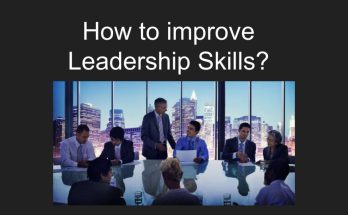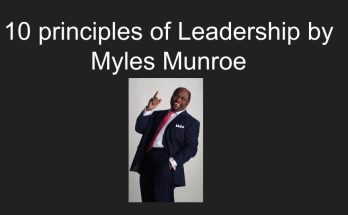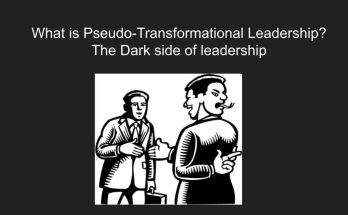What power must a leader have to lead effectively? Let’s explore types of power a leader has to lead effectively. These types of power define the essence of true leadership.
In every workplace/organization leaders have certain power, some leaders use them to inspire, some use them to create loyal followers, some use them to intimidate or generate silent resistance.
Whether positive or negative leaders have power to take best out of the team or the individual.
So, what power must a leader have to lead effectively?
Let’s understand the most recognized leadership powers and explore which one truly matters in the modern day workplace.
6 types of power in leadership
Here is the list of 6 types of power in leadership.
- Legitimate Power
- Reward Power
- Coercive Power
- Expert Power
- Referent Power
- Information Power
Now, we will explore these 6 types of power in leadership.
- Legitimate Power
Legitimate power comes from the position in the organization like CEO, COO, President, General Manager and so on.
People in the organisation follow your direction because of your position as it gives you formal authority.
How to use legitimate power effectively?
The leader has to use this power fairly, as it may have negative consequences also, people will take your jokes seriously since you are in that position.

To make the best of legitimate power, the leader can use it to communicate expectations clearly, make decisions transparently and fairly.
When people understand why you are asking for something, they are likely to adhere or comply with the command.
A leader who communicates his/her expectation clearly and makes decisions fairly is likely to have more followers.
How to enhance legitimate power?
- Strengthen your credibility by leading with fairness
- Show Consistency – Your team should never be confused about your priorities and values.
- Don’t overdo relying on power, utilize other leadership power.
- Reward Power
Reward power is the positive reinforcement a leader can use to nurture positive behaviour in his/her follower.

It is a leader’s ability to reward and recognize desired behavior in a team through bonuses, promotion, appreciation mails, and growth opportunities.
How to use Reward Power?
A leader must ensure that reward must be meaningful and timely.
A public thank you, pat on the back or simple appreciation emails are some of the non-monetory rewards a leader can use.
The key is that the reward must be fair, on time and meaningful.
How to enhance Reward Power?
- Personalize rewards — know what motivates each individual.
- Link rewards to team goals rather than favoritism.
- Create a culture where success is celebrated openly.
- Have a system of public appreciations.
- Coercive Power
Coercive power is the power of consequences, it is part of negative reinforcement for discouraging negative behavior in individuals.
Every leader has the power to use penalties or enforce other punishment when expectations are not met.
Coercive power is associated with fear, it can be more effective if used fairly and with respect.
How to use Coercive power effectively?
Coercive power should never be the default approach of any leader, it has negative impact on culture and creates an atmosphere of fear in the organization.

However this power must be used to hold people accountable and get desired outcome but definitely not to control people.
How to enhance Coercive power?
- Set clear boundaries and standards early.
- Pair corrective feedback with guidance for improvement.
- Focus on behavior, not personality.
- Expert Power
Expert power comes from the competence of a leader, honestly they are made leaders because of their technical competence in the first palace.
It also comes from knowledge, skills and experience of the leader, people follow them because they trust on their expertise.
How to use Expert Power effectively?
Use your expertise to solve problems, make better decisions and not to show your superiority.

Become a mentor to your team, guide, encourage and train them in technical skills which they are lacking.
How to enhance Expert Power?
- Keep learning continuously — industries evolve fast.
- Seek feedback and stay humble about what you don’t know.
- Demonstrate your expertise through actions and results, not titles.
- Referent Power
Every leader has their own charisma and charm they bring to leadership, which helps them to gain respect as a power.
It is a power of influence that a leader builds on trust and emotional connection.

Referent power is based on personal charisma, integrity, and the respect people have for you.
How to use Referent Power effectively?
When people feel heard, valued and empathised with, they naturally want to follow your lead.
Be authentic, show empathy, Listen more than you speak.
How to enhance Referent Power?
- Lead by example — walk your talk.
- Build genuine relationships across all levels.
- Be consistent in your values, even when it’s inconvenient.
- Informational Power
A leader must have firsthand and authentic information, he should have access to valuable information that others usually don’t have.

A leader must develop sources of information whether it is company strategy, market data or insights.
How to use Information Power effectively?
When leaders share information and knowledge transparently, it creates an atmosphere of trust and alignment in the team.
Use information to empower the team and individuals not to manipulate them.
How to enhance Information Power?
- Keep communication open and clear.
- Be the bridge between teams and leadership.
- Use data to support collaboration, not control.
- Have knowledge sharing sessions with the team.
Which powers matter most for matters most for effective leadership?
While every power has its own merit and demerit, Referent and Expert power stand out as most suitable and self-driven.
These powers are not assigned by anyone, a leader earns them through character and competence.
You simply need authenticity, willingness to help others and knowledge to build Referent and Expert power.

So, if you ask again — “What power must a leader have to lead effectively?” — the answer lies not in authority but in influence.
True leaders don’t command; they inspire. They don’t rely on power over people — they use power with people.
Legitimate and reward power may open doors, but Referent and Expert power will keep them open with building trust and respect.
If you’re a leader, focus on cultivating influence, authenticity, and expertise. That’s the kind of power that never expires.
Reference
BetterUp: 7 Types of Power in Leadership
American Express: 7 Powers Leaders Can Use for Good or Evil


